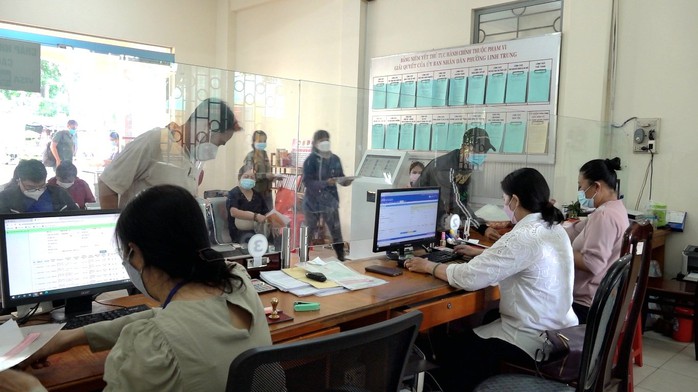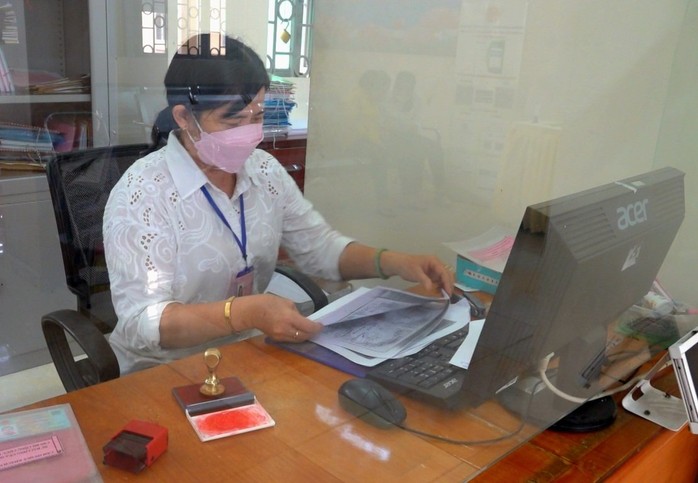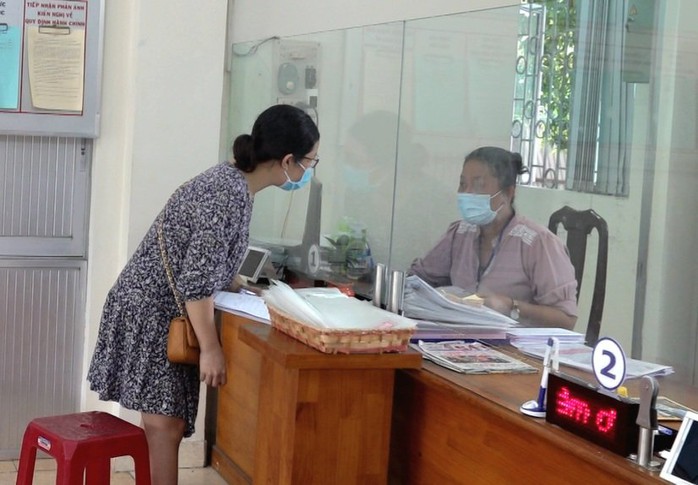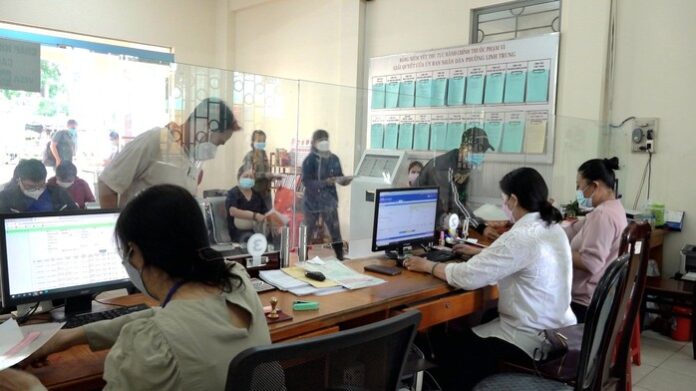The government has recently issued Decree 93/2025/ND-CP, amending and supplementing a number of articles of Decree 19/2020/ND-CP from 2020 (Decree 19) on inspection and disciplinary procedures for violations in the implementation of administrative violation handling laws. The decree outlines seven disciplinary measures for officials, civil servants, and public employees who commit violations in the execution of these laws.
These new provisions will officially come into force on June 15, 2025.

Officials, civil servants, and public employees interacting with citizens
1. Reprimand
Reprimand is applicable to officials, civil servants, and public employees who commit a first-time offense with minor consequences. The specific violations are as follows:
For officials and civil servants: Violation of any of the acts listed in items 1, 3, 6, 7, 9, 10, 13, 14, 15, 18, and 20 of Article 22 of Decree 19.
Item 1: Retention of cases with criminal indications for administrative violation handling.
Item 3: Abuse of position or authority to harass, demand, or receive money or assets from violators; condoning or shielding violators, or restricting their rights during administrative violation handling.
Item 6: Issuing violation reports beyond one’s authority, or with inaccurate details regarding the violation or the violator.
Item 7: Failure to adhere to the stipulated timeframe for issuing violation reports or deciding on administrative sanctions.
Item 9: Imposing administrative sanctions, applying remedial measures, or implementing administrative handling measures beyond one’s authority, or with incorrect procedures or targets as stipulated by law. This also includes the inappropriate or incomplete application of sanctions, remedial measures, or the failure to apply them at all.
Item 10: Incorrect identification of the violation when issuing a decision on administrative sanctions, except in cases where the violator is considered for handling under Item 9 of this article.

Reprimand is issued for first-time offenses with minor consequences (Illustrative image)
Item 13: Failure to monitor, urge, inspect, or organize the implementation of decisions on administrative sanctions, confiscation of violation tools and means, or application of remedial measures as stipulated; or failure to organize the enforcement of decisions on administrative sanctions or application of remedial measures.
Item 14: Misuse of funds obtained from administrative violation sanctions.
Item 15: Failure to provide, or provision of inaccurate, incomplete, or untruthful information and documents related to the inspection of the implementation of laws on handling administrative violations.
Item 16: Obstruction or hindrance of inspectors, or threats or retaliation against those who provide information and documents to the inspection team, thereby causing difficulties for the inspection of the implementation of laws on handling administrative violations.
Item 18: Provision of information, documents, or case files of the inspected subjects to organizations or individuals without the proper authority or responsibility.
Item 20: Lack of responsibility in directing the implementation of inspection conclusions on the implementation of laws on handling administrative violations.
For public employees: First-time offenses with minor consequences, as specified in items 3, 6, 14, 15, 18, and 20. Violation of the stipulated timeframe for issuing violation reports, with an impact on timeliness and objectivity in handling, is also subject to disciplinary action in the form of a reprimand.
Item 3: Abuse of position or authority to harass, demand, or receive money or assets from violators; condoning or shielding violators, or restricting their rights during handling.
Item 6: Issuing violation reports beyond one’s authority, or with inaccurate details regarding the violation or the violator.
Item 14: Misuse of funds obtained from administrative violation sanctions.
Item 15: Failure to provide, or provision of inaccurate, incomplete, or untruthful information and documents related to the inspection of the implementation of laws on handling administrative violations.
Item 18: Provision of information, documents, or case files related to the inspected subjects to organizations or individuals without the proper authority or responsibility as stipulated by law.
Item 20: Lack of responsibility in directing or organizing the implementation of inspection conclusions on the implementation of laws on handling administrative violations.
2. Warning
A warning is issued when the violator has reoffended after being reprimanded, or when the first offense has serious consequences. It also applies to violations of the acts listed in items 2, 4, 5, 8, 11, 16, and 17 of Article 22, as well as failure to amend or supplement sanction decisions or implement inspection conclusions.
Item 2: Forgery or manipulation of sanction case files or case files on the application of administrative handling measures.
Item 4: Illegal intervention in the handling of administrative violations.
Item 5: Failure to issue violation reports upon detection of administrative violations as stipulated.
Item 8: Failure to issue sanction decisions or apply administrative handling measures to violators as stipulated. This also includes failure to confiscate violation tools and means or apply remedial measures.
Item 11: Prolonging the application of administrative handling measures.
Item 16: Obstruction or hindrance of inspectors; threats or retaliation against those who provide information and documents to the inspection team; causing difficulties for the inspection of the implementation of laws on handling administrative violations.
Item 17: Illegal intervention in the inspection of the implementation of laws on handling administrative violations.
3. Demotion
Demotion is applicable to non-leading or managing civil servants who reoffend after being warned, or whose first offense has very serious consequences.

Demotion is a disciplinary measure for non-leading or managing civil servants who reoffend after being warned or whose first offense has very serious consequences.
4. Degradation
Degradation is applicable to leading or managing civil servants who reoffend after being warned, or whose first offense has very serious consequences.
5. Dismissal
Dismissal is applicable in the following cases: for officials who reoffend after being warned; for leading civil servants who reoffend after degradation or whose first offense has special serious consequences, but with a positive attitude towards rectification and mitigating circumstances; and for managing public employees who reoffend after being warned or whose first offense has very serious consequences.
6. Forced resignation
Forced resignation is applicable in special cases of serious consequences: for civil servants who reoffend after demotion or whose first offense has special serious consequences; for leading civil servants who reoffend after dismissal or whose first offense has special serious consequences; or for regular or managing public employees who reoffend after being warned, dismissed, or whose first offense has special serious consequences.
7. Removal from office
Removal from office is a new disciplinary measure introduced in Decree 93/2025/ND-CP. It is applicable to officials who commit a first offense with special serious consequences in cases where forced resignation is applicable.

















